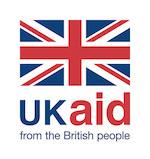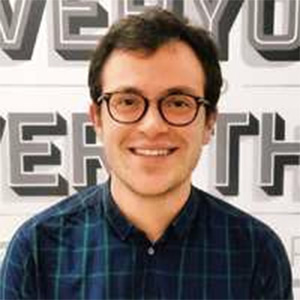This blog post is the second of a four-part blog series highlighting the work of four mobile network operators (MNOs) featured in our latest report, Partnering During Crisis: The Shared Value of Partnerships between Mobile Network Operators and Humanitarian Organisations. This blog series will shed light on each MNOs current engagement and future vision on their involvement in the humanitarian space, as well as their role in supporting the response to COVID-19.
Read the full report in English, and the executive summary and Vodacom Mozambique case study in Portuguese.
Interview with Jerry Mobbs, Managing Director of Vodacom Mozambique.
In spring 2019, two large tropical cyclones, Idai and Kenneth, struck southern Africa, making landfall in Mozambique. The cyclones caused extensive damage and created acute humanitarian emergencies. In the aftermath of both cyclones, close to an estimated 2.2 million people required assistance in Mozambique alone. In the wake of these cyclones, Vodacom, the largest MNO in Mozambique, provided support to the ongoing humanitarian response.
GSMA: As an organisation, what are you most proud of in terms of your engagements with humanitarian/development actors during the 2019 cyclone response in Mozambique?
Jerry: We worked as One Team – every person, whether a full time employee, or a contractor, supplier, partner, were all considered essential parts of the team to be either helped or to help others. This magnified our efforts immensely.
GSMA: What have been the biggest lessons that you have learned from working with humanitarian actors in supporting disaster response?
Jerry: We took a number of key lessons away from our experience. Firstly it is essential to get the internet at the aid hub running as soon as possible. This helps to gets the message out to support global fundraising activities and it helps the humanitarian organisations to start their response. Secondly we quickly realised that we have essential local knowledge and capabilities that can be hugely beneficial to response agencies and so we must share these quickly. Finally, we recognise that it is important to not try and emulate what the aid agencies do, but work to ensure we add value where our strengths are.
GSMA: Do you have any plans for future work in this space?
Jerry: Yes, we intend to continue supporting during a crisis, however each disaster determines the response. We will continue to stay flexible in the early days to identify how we can help.
GSMA: What are you currently doing or planning to do in regards to support the response to COVID-19?
Jerry: Vodacom is working hard to support the response to COVID-19 in Mozambique. Some key examples include having set up 30,000 hand washing stations at our MPesa agents across the country, providing anonymised big-data support to Government in its decision making around the response as well as providing the help health service with both data and devices. We are also zero rating internet for online learning portals.
To find out more about Vodacom Mozambiques’s experiences working with humanitarian organisations, read the full report in English, and the executive summary and Vodacom Mozambique case study in Portuguese. You can also watch a panel discussion between Jerry, Yazen Altimimi of Zain Cash Iraq, and Belinda Baah and Max Cuvellier from the GSMA on these topics. Look out for future blogs with other MNOs from our Partnering During Crisis blog series in the coming weeks and months.



